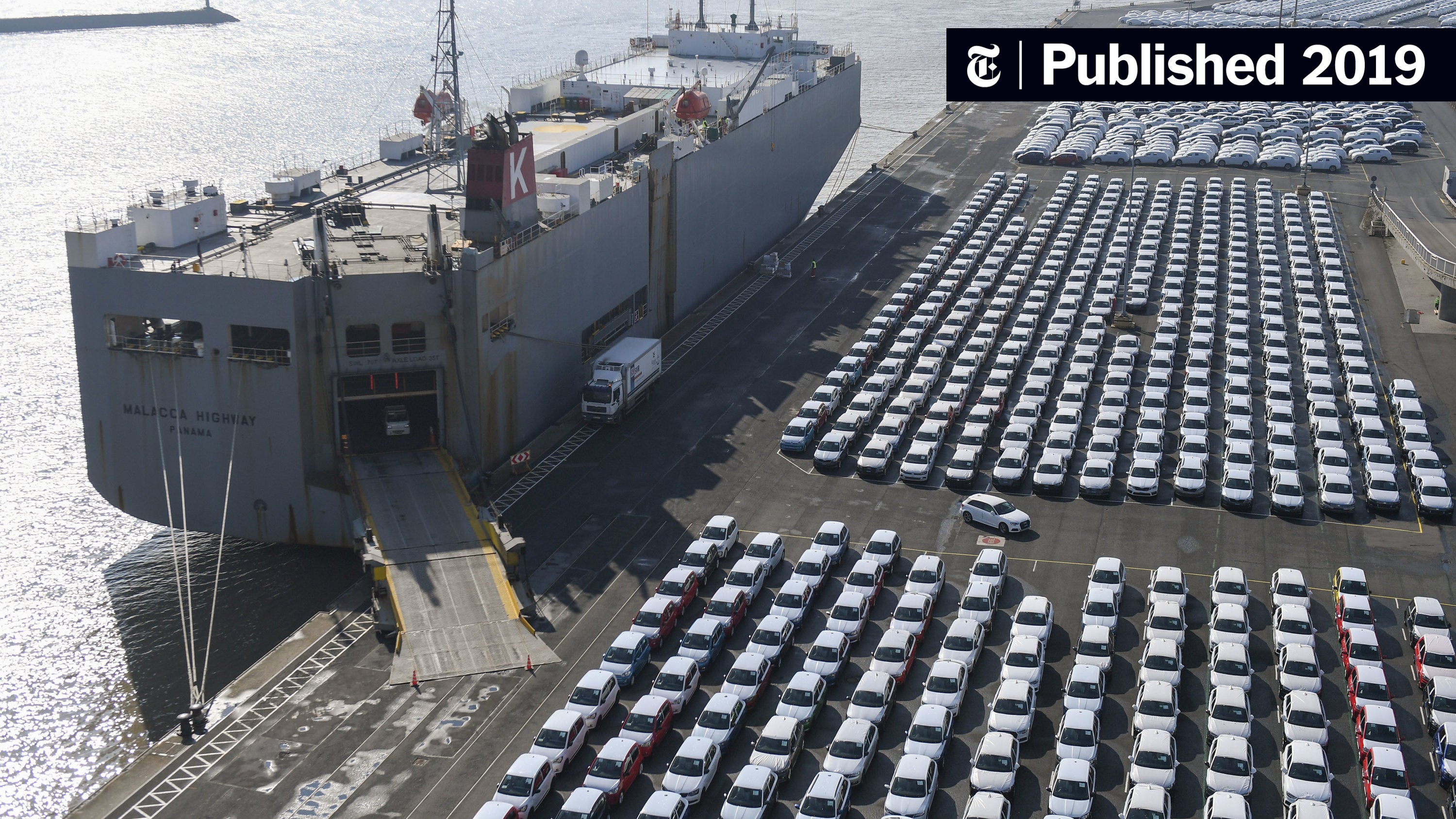The Unpredictability Of Trump's Tariffs And Their Effect On Auto Production

Table of Contents
The Rollercoaster of Tariff Announcements and Their Immediate Impact
Trump's tariff announcements were often sudden and lacked transparency, creating significant market volatility and uncertainty for automakers. This unpredictability made it difficult for businesses to plan for the future, impacting investment strategies and production schedules.
-
Sudden announcements of tariffs created significant market volatility and uncertainty for automakers. The lack of forewarning meant companies had little time to adjust their sourcing, pricing, or production strategies. This led to immediate stock market fluctuations as investors reacted to the news.
-
Increased costs of raw materials (steel and aluminum) directly impacted vehicle production costs. Tariffs on imported steel and aluminum increased the price of these crucial raw materials, directly impacting the cost of manufacturing vehicles. This squeezed profit margins and forced automakers to either absorb the increased costs or pass them on to consumers through higher vehicle prices.
-
Uncertainty surrounding future tariff policies deterred investment in new automotive manufacturing facilities and technologies. The unpredictable nature of the tariff regime discouraged investment in long-term projects. Companies hesitated to commit significant capital to expansion or technological upgrades when facing the risk of sudden tariff changes that could render their investments unprofitable.
-
Examples of specific tariff announcements and their immediate effects on the stock prices of major automakers. For example, the announcement of steel and aluminum tariffs in 2018 led to immediate drops in the stock prices of major automakers like Ford and General Motors, as investors anticipated increased production costs.
-
Ripple effect on related industries (e.g., parts suppliers). The impact extended beyond the major automakers. Parts suppliers, many of whom relied on imported materials, also faced increased costs and uncertainty, leading to potential job losses and reduced investment in research and development.
Disruption of Global Automotive Supply Chains
The global auto industry relies heavily on complex, just-in-time manufacturing systems. Trump's tariffs significantly disrupted these established supply chains.
-
Tariffs disrupted the just-in-time manufacturing model prevalent in the auto industry. The just-in-time system, designed for efficiency by minimizing inventory, became vulnerable to disruptions caused by tariff-related delays and increased costs of imported parts.
-
Impact of tariffs on the sourcing of imported parts and components. Many automakers source parts and components from around the world. Tariffs made importing these parts more expensive and less reliable, forcing companies to explore alternative, often more costly, suppliers.
-
Challenges of reshoring or nearshoring production to avoid tariffs. To mitigate the impact of tariffs, some automakers considered reshoring (moving production back to the US) or nearshoring (moving production to nearby countries). However, this proved to be a complex and expensive undertaking, requiring significant investment in new facilities and infrastructure.
-
Examples of specific supply chain disruptions caused by Trump's tariffs. Numerous cases arose where the timely delivery of critical parts was delayed due to increased customs processing times or higher import duties. This led to production slowdowns and even plant closures in some instances.
-
Increased costs and logistical challenges associated with sourcing alternative suppliers. Finding reliable alternative suppliers outside of the affected countries proved difficult, leading to increased costs and logistical challenges.
Case Study: General Motors' Experience with Trump Tariffs
General Motors, a major US automaker, experienced significant challenges due to Trump's tariffs. Increased costs of imported steel and aluminum directly impacted their manufacturing costs. The company had to navigate the complexities of adjusting their supply chains, searching for new suppliers, and absorbing increased costs or passing them on to consumers. The uncertainty surrounding future tariff policies also made it difficult for GM to plan long-term investments. The financial impact was substantial, affecting profitability and forcing the company to adapt its strategies to mitigate losses.
Long-Term Effects on Auto Production and Investment
The unpredictability of Trump's tariffs had lasting consequences for the auto industry.
-
Long-term consequences of tariff-induced uncertainty on investment in the auto sector. The uncertainty created by the tariffs discouraged investment in new plants, equipment, and technology, hindering long-term growth and competitiveness.
-
Potential impact on the competitiveness of the US auto industry globally. Increased production costs, coupled with uncertainty, potentially reduced the competitiveness of US automakers in the global market, impacting their ability to compete with companies from countries with more stable trade policies.
-
Effects on employment within the automotive sector. While some jobs may have been created through reshoring efforts, the overall impact on employment was likely negative due to reduced production and investment.
-
Shift in global automotive production patterns as a result of the tariffs. The tariffs influenced the location of automotive production, leading some companies to shift production to countries outside of the US to avoid tariffs.
-
Potential for future trade disputes and their impact on the auto industry. The experience with Trump's tariffs underscores the vulnerability of the auto industry to trade disputes and the importance of stable and predictable trade relations for long-term growth and stability.
Conclusion
The unpredictable nature of Trump's tariffs inflicted significant damage on the auto industry, causing supply chain disruptions, increased costs, and hindering investment. The volatile environment created by these policies highlights the critical need for stable and predictable trade policies to ensure the health and competitiveness of the global automotive sector. Understanding the unpredictable impact of trade policies, like the Trump tariffs, is crucial for navigating the complexities of the global auto industry. Continue to learn more about the effects of trade wars and the importance of stable trade relations on the future of auto production. Stay informed about future trade policy developments and their potential effects on the auto industry, as unexpected tariffs could significantly impact your business.

Featured Posts
-
 Christina Aguileras Latest Photoshoot Sparks Debate Over Image Editing
May 02, 2025
Christina Aguileras Latest Photoshoot Sparks Debate Over Image Editing
May 02, 2025 -
 The Christina Aguilera Photoshopping Scandal Fans Express Disappointment And Concern
May 02, 2025
The Christina Aguilera Photoshopping Scandal Fans Express Disappointment And Concern
May 02, 2025 -
 Glastonbury 2025 Final Resale Tickets Available Now
May 02, 2025
Glastonbury 2025 Final Resale Tickets Available Now
May 02, 2025 -
 Fortnite Item Shop Free Captain America Items For A Limited Time
May 02, 2025
Fortnite Item Shop Free Captain America Items For A Limited Time
May 02, 2025 -
 Obituary Priscilla Pointer Actress In Carrie Passes Away At Age 100
May 02, 2025
Obituary Priscilla Pointer Actress In Carrie Passes Away At Age 100
May 02, 2025
